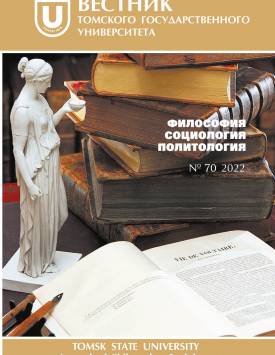Ontological and epistemological status of consciousness in naturalistic theories
When studying the phenomenon of consciousness, we are always forced to proceed from certain prerequisites that have an inevitable impact on the theory of consciousness itself. Obviously, the key disagreement is monism (in its materialistic version), or dualism in relation to consciousness. I believe that in order to resolve the issue of consciousness, it is also necessary to determine its ontological and epistemological status. If we take the position of materialism or naturalism in relation to consciousness, then further we need to recognize consciousness as a separate entity (which leads to dualism), or deny it. I think that consciousness without a brain is devoid of an independent ontological status and can rather be considered within the whole “brain-consciousness.” Consciousness is a property of living beings (or other information systems), which in some way manifests itself in their behavior. At the same time, the epistemological status of consciousness cannot be unambiguous, and an approach called epistemological or cognitive pluralism (Sven-Ove Horst’s term) is applicable here: the scientific study of consciousness from the point of view of the third person does not deny the view from the first person - direct access to consciousness, which each of us has. These are different ways of describing the same complex of phenomena, and they should complement each other, incorporating both scientific and everyday ideas about consciousness, taking into account its subjective, phenomenal status, its irreducible “qualitative” nature. It is important to reckon the fact that the very language we use when we speak about consciousness, and the whole range of problems associated with it, was once invented, but now scientific reality itself has changed and, perhaps, other, more adequate concepts are needed to describe it. Daniel Dennett wrote a lot about this; his views on consciousness are considered by many to be eliminativist. Another interesting approach to consciousness is “non-reductive naturalism,” which considers consciousness as a natural phenomenon, but does not reduce it to a material basis. Among the representatives of this trend is Lynne Rudder Baker. I adhere to the position of biological naturalism: consciousness acts as a natural result of the development of the brain, which appeared in the course of evolution. Consciousness itself does not have independence, but this phenomenon is so complex and multifaceted that we cannot give the only correct description of it. The author declares no conflicts of interests.
Keywords
naturalistic theories of consciousness, ontological status of consciousness, epistemological pluralism, “non-reductive naturalism”Authors
| Name | Organization | |
| Uskova Ekaterina V. | Ural Federal University | uskova80@mail.ru |
References

Ontological and epistemological status of consciousness in naturalistic theories | Tomsk State University Journal of Philosophy, Sociology and Political Science. 2022. № 70. DOI: 10.17223/1998863X/70/6
